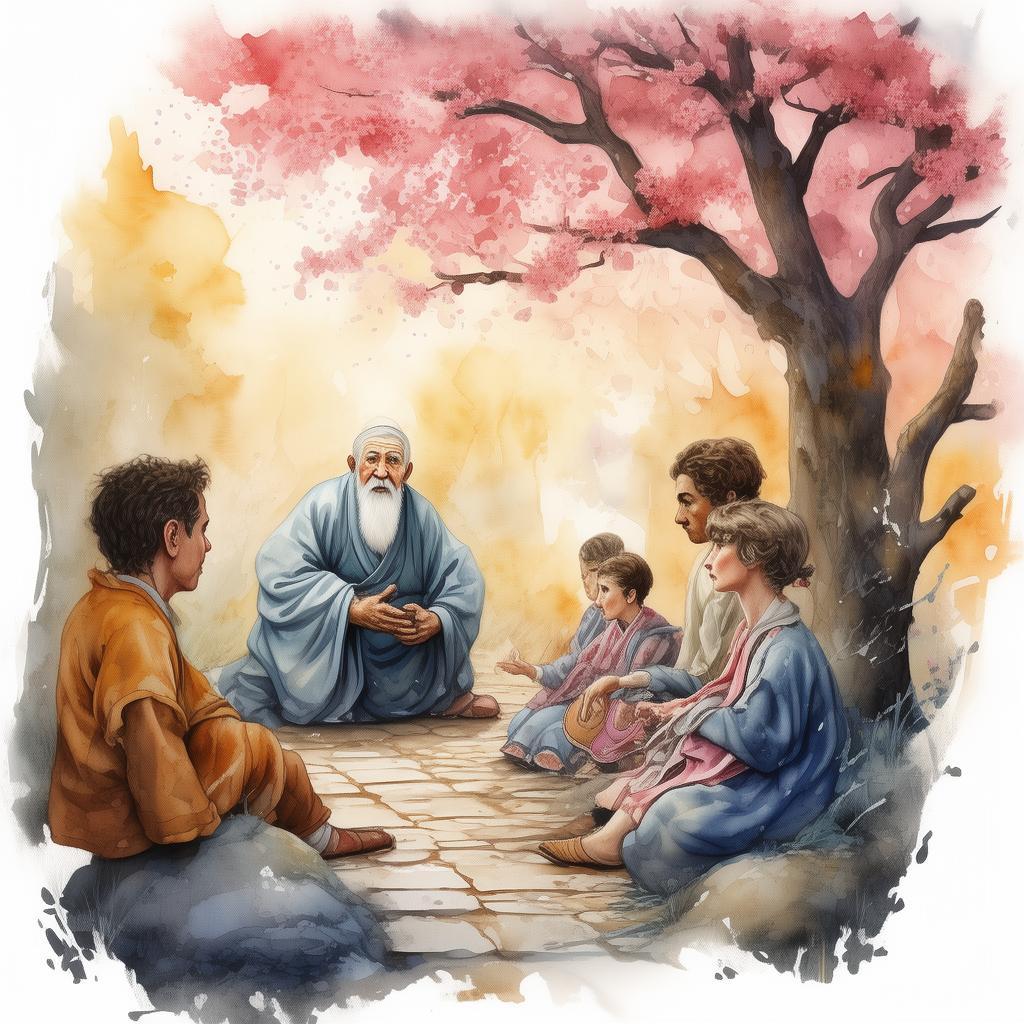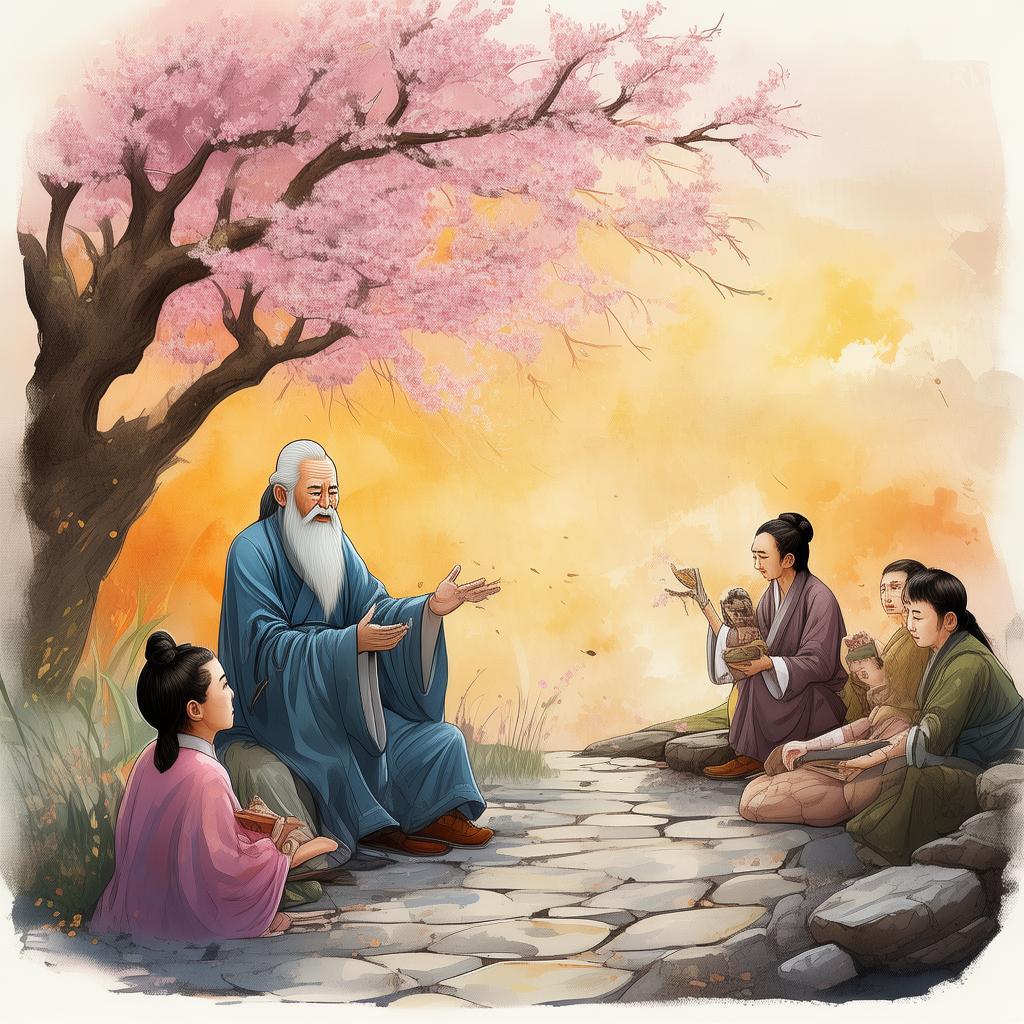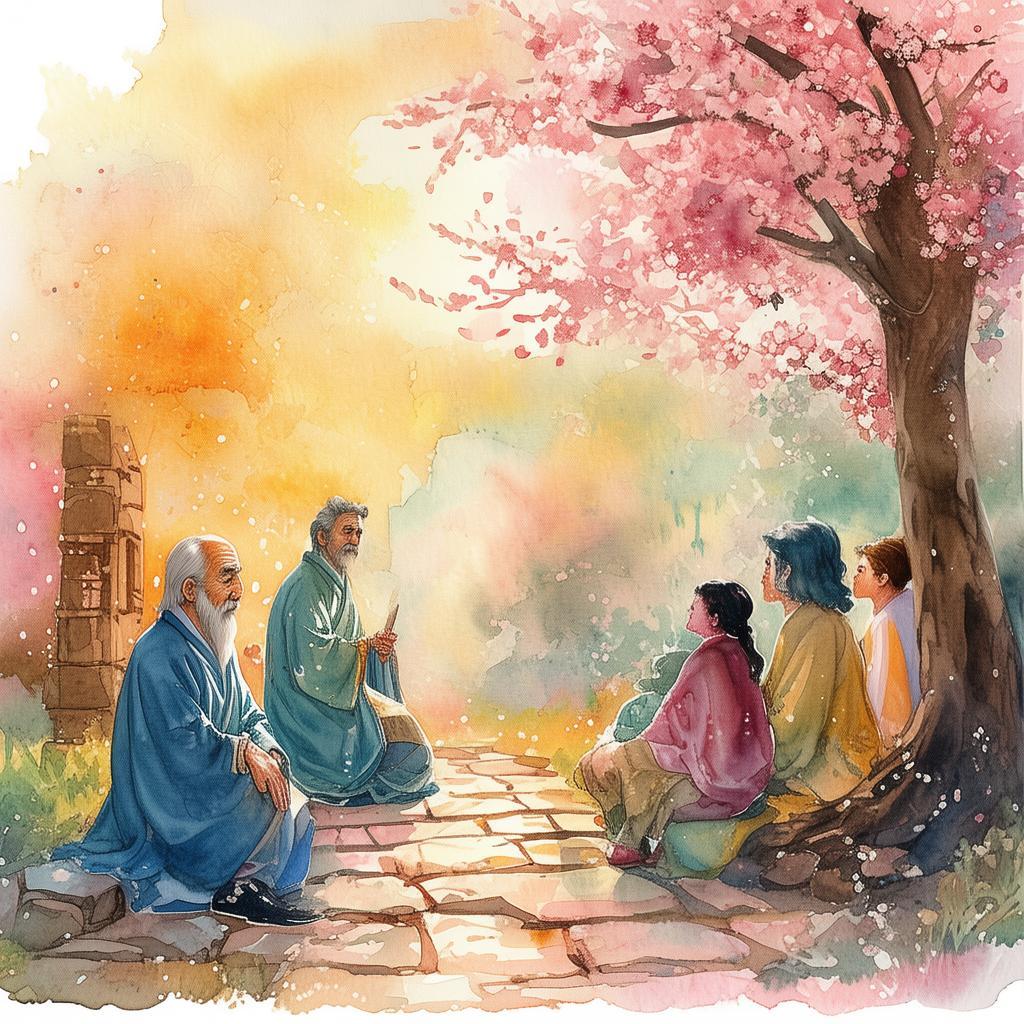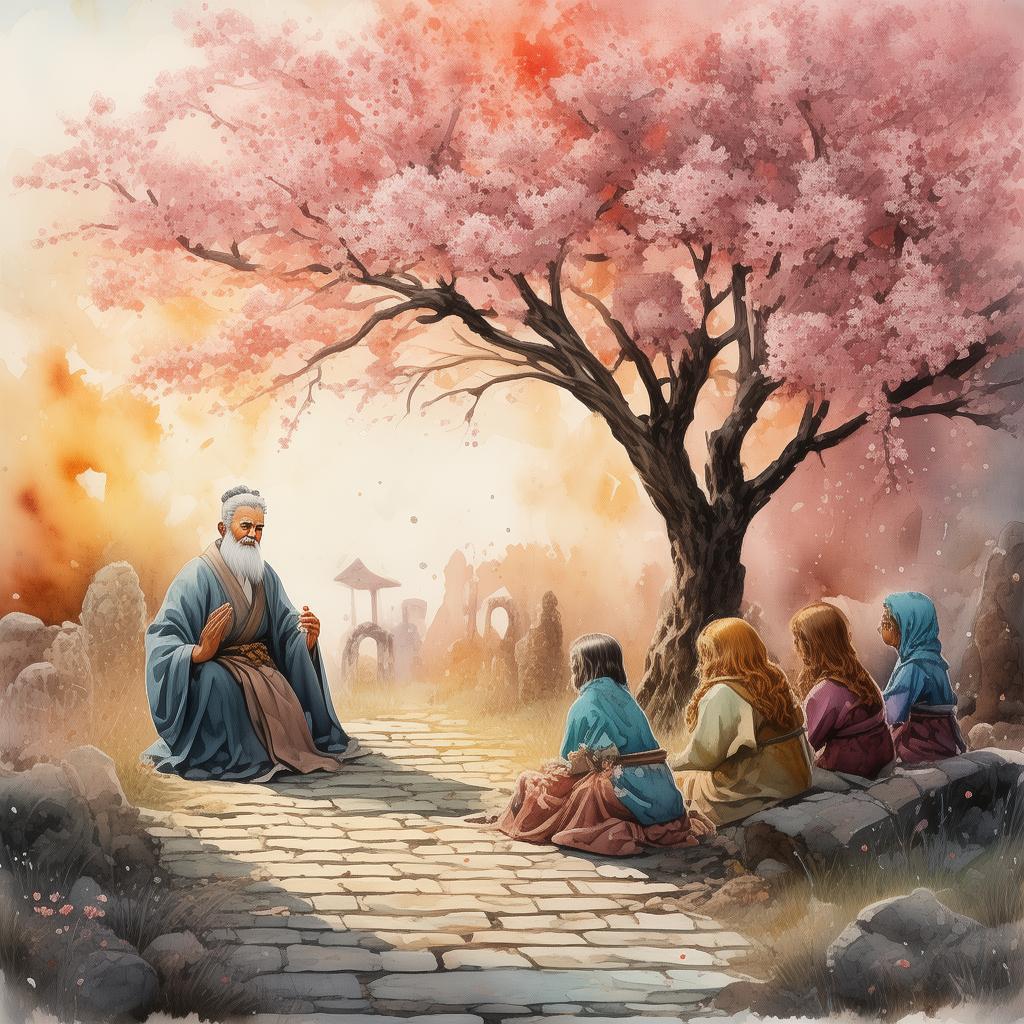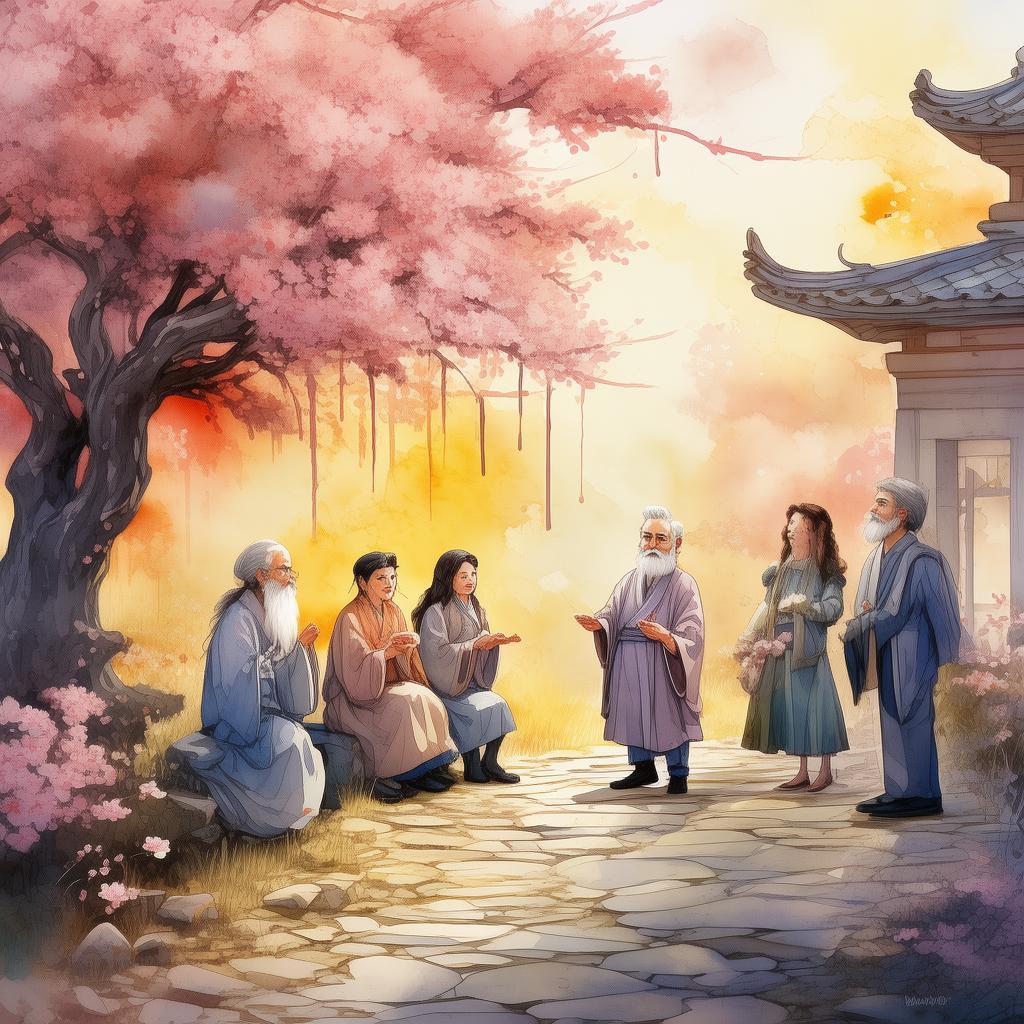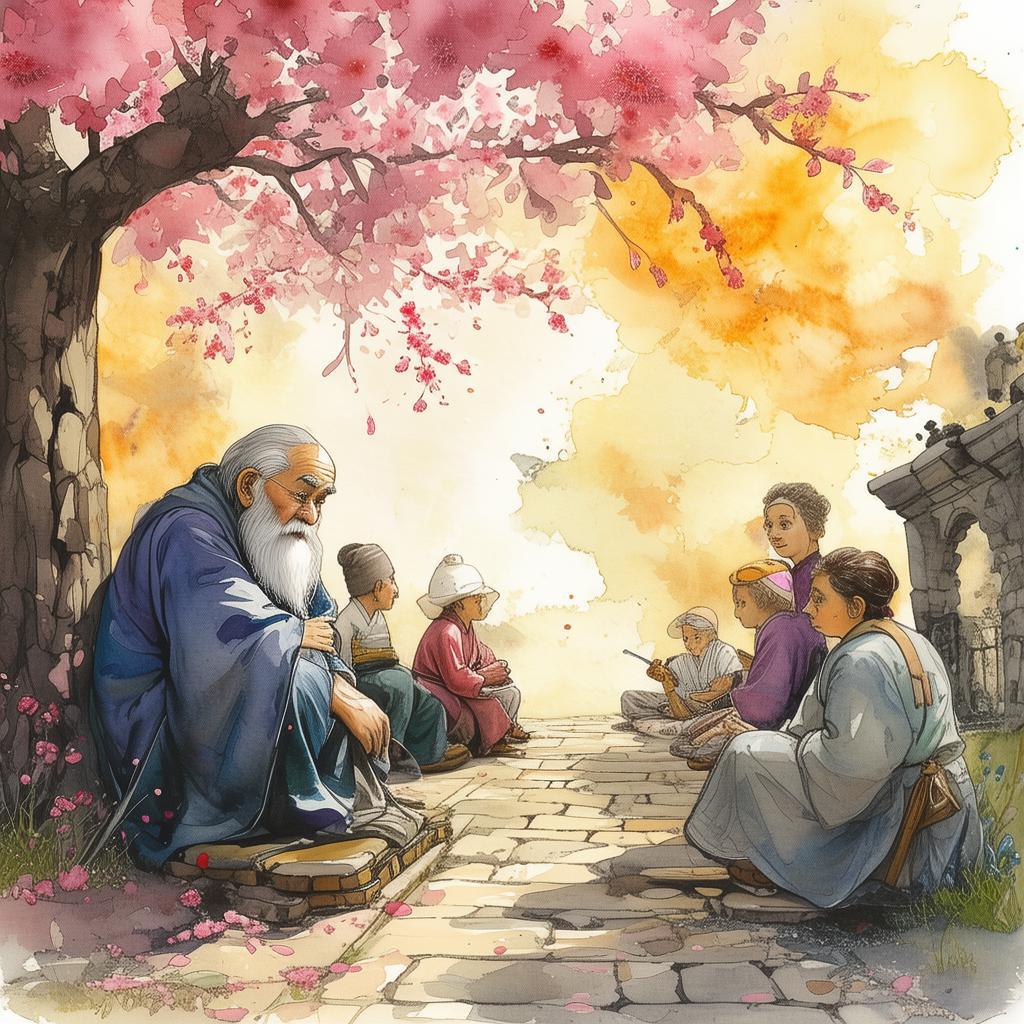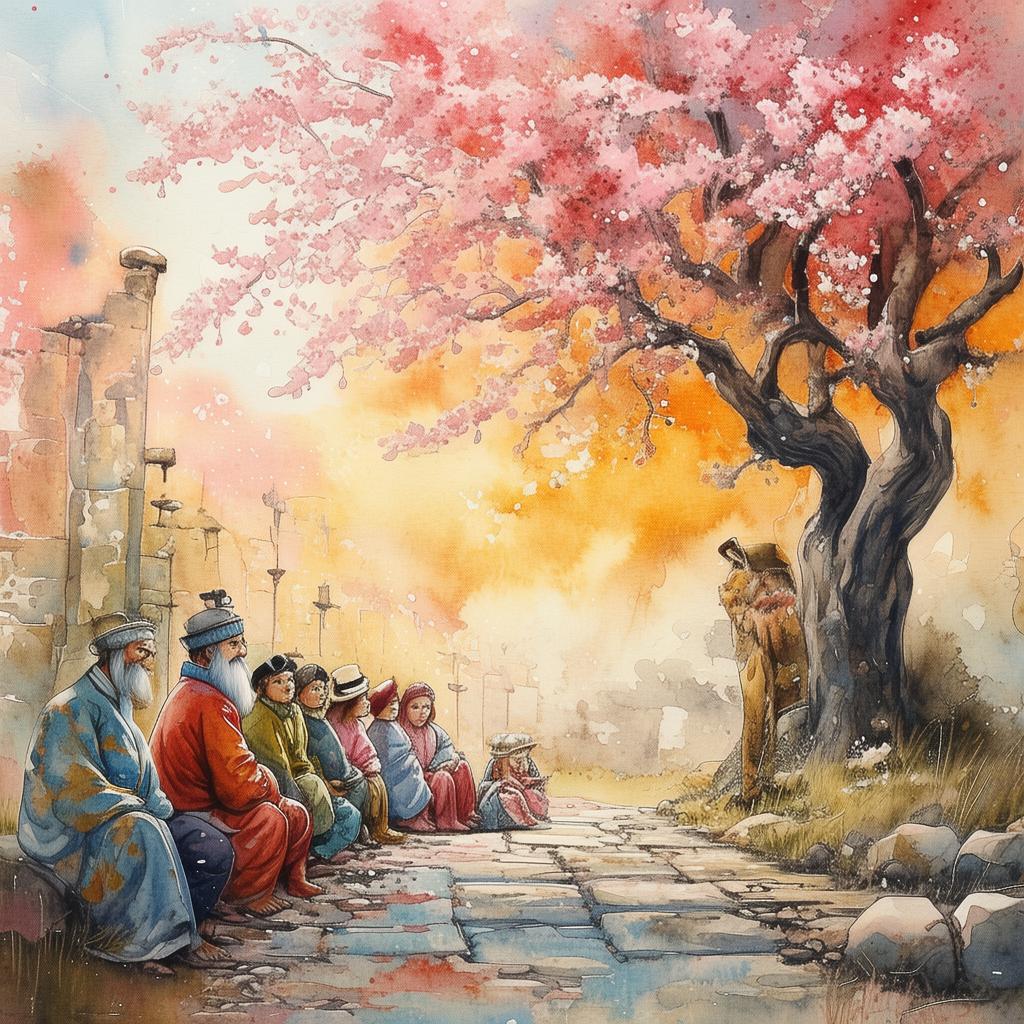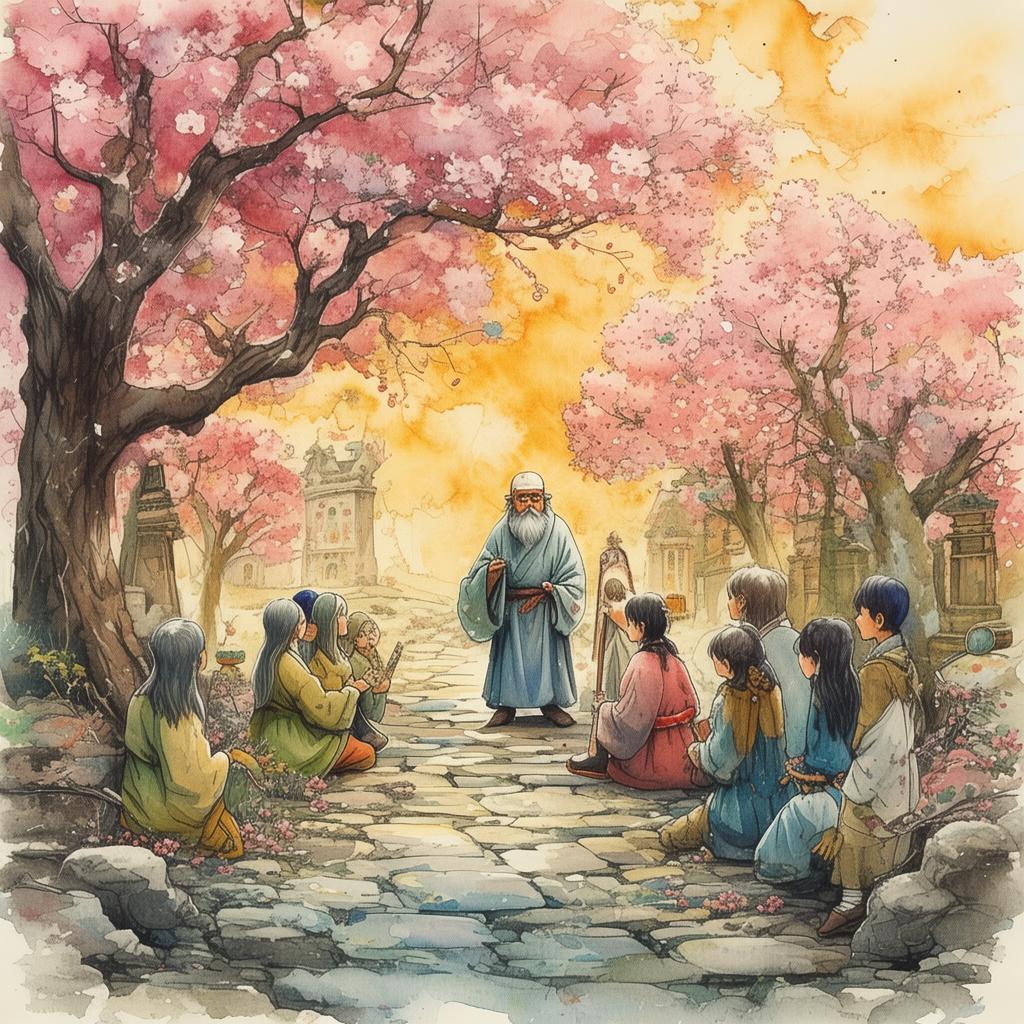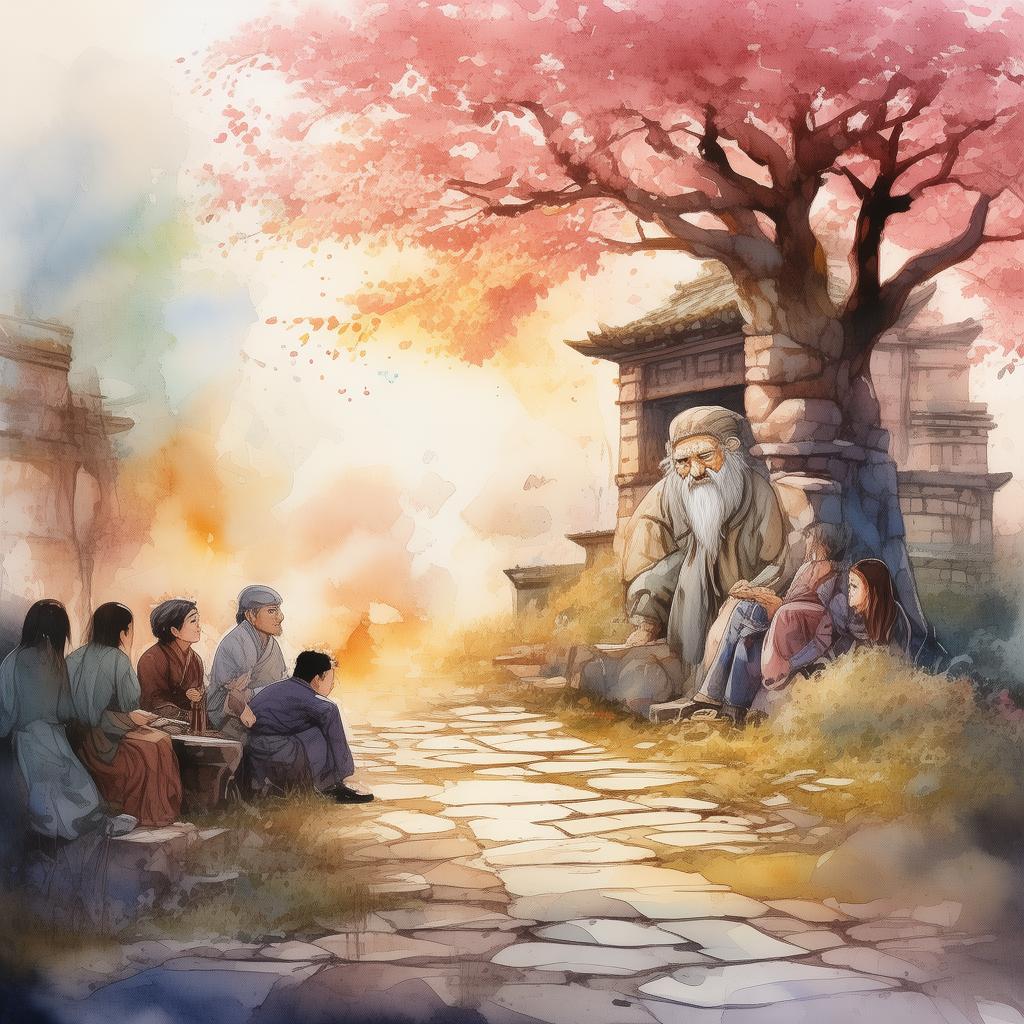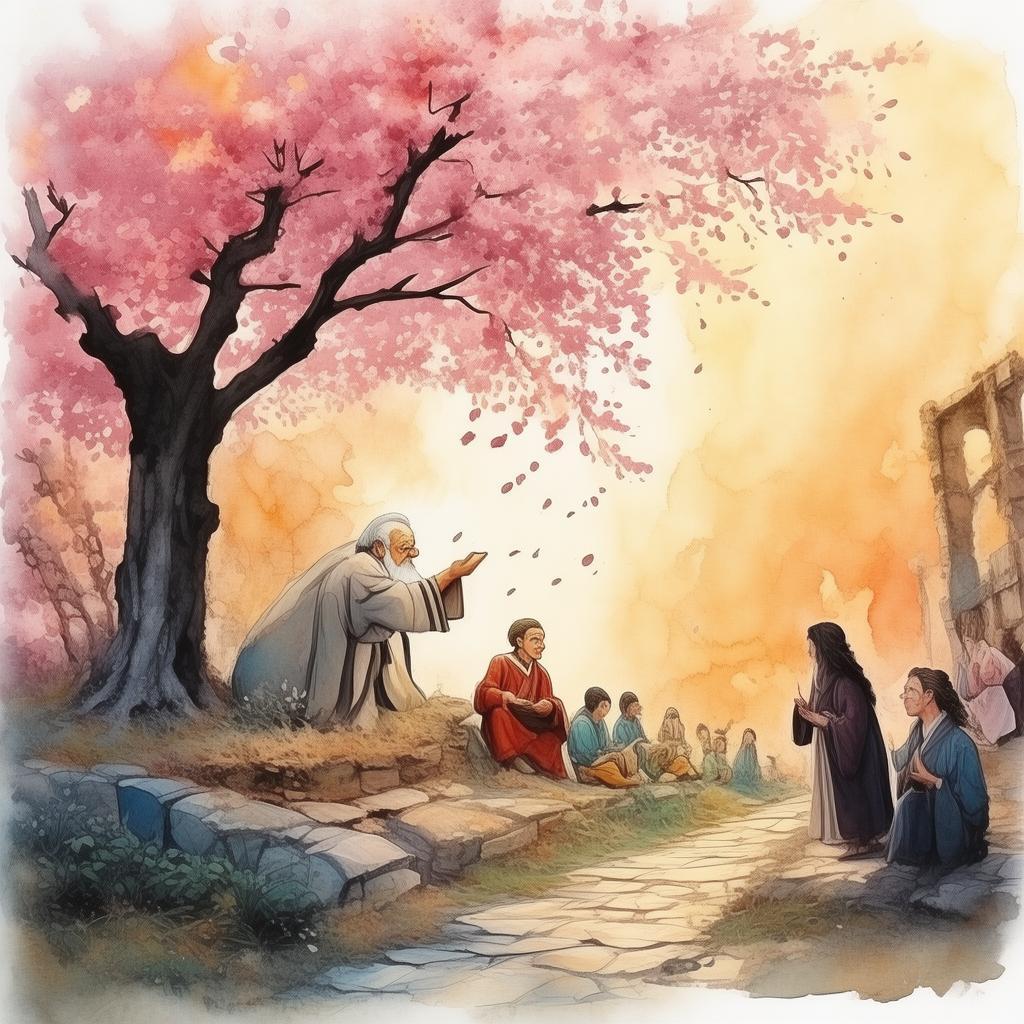The Unyielding Mind: A Quest for Enlightenment
In the heart of ancient China, where the whispers of sages and the teachings of emperors echoed through the ages, there lived a young philosopher named Cheng. He was known throughout the land for his sharp intellect and unyielding spirit. Cheng was the son of a modest farmer, but his heart yearned for the profound truths that only the greatest philosophers could uncover.
One day, as Cheng wandered through the markets of his village, he overheard a conversation between two scholars. They spoke of a puzzle that had baffled the brightest minds of their time, a riddle that was said to contain the key to enlightenment itself. Intrigued and driven by his thirst for knowledge, Cheng decided to seek out the puzzle.
The puzzle was known as "The Philosopher's Riddle," a conundrum that had been passed down through generations. It was a riddle so complex that no one, not even the wisest of scholars, could solve it. The riddle went like this:
"I have no head, no feet, but I go everywhere. I am not alive, but I grow. What am I?"
Cheng spent days pondering the riddle, his mind racing with possible answers. He considered the earth, the sky, the sun, and the moon, but none seemed to fit. He sought counsel from the village elder, who, with a twinkle in his eye, simply smiled and said, "The answer is hidden in the most unexpected place."
Determined to uncover the truth, Cheng traveled to the capital, where the greatest minds of the land had gathered. He sought out the most renowned philosophers, each offering their own interpretations. But none could provide the answer that Cheng sought.
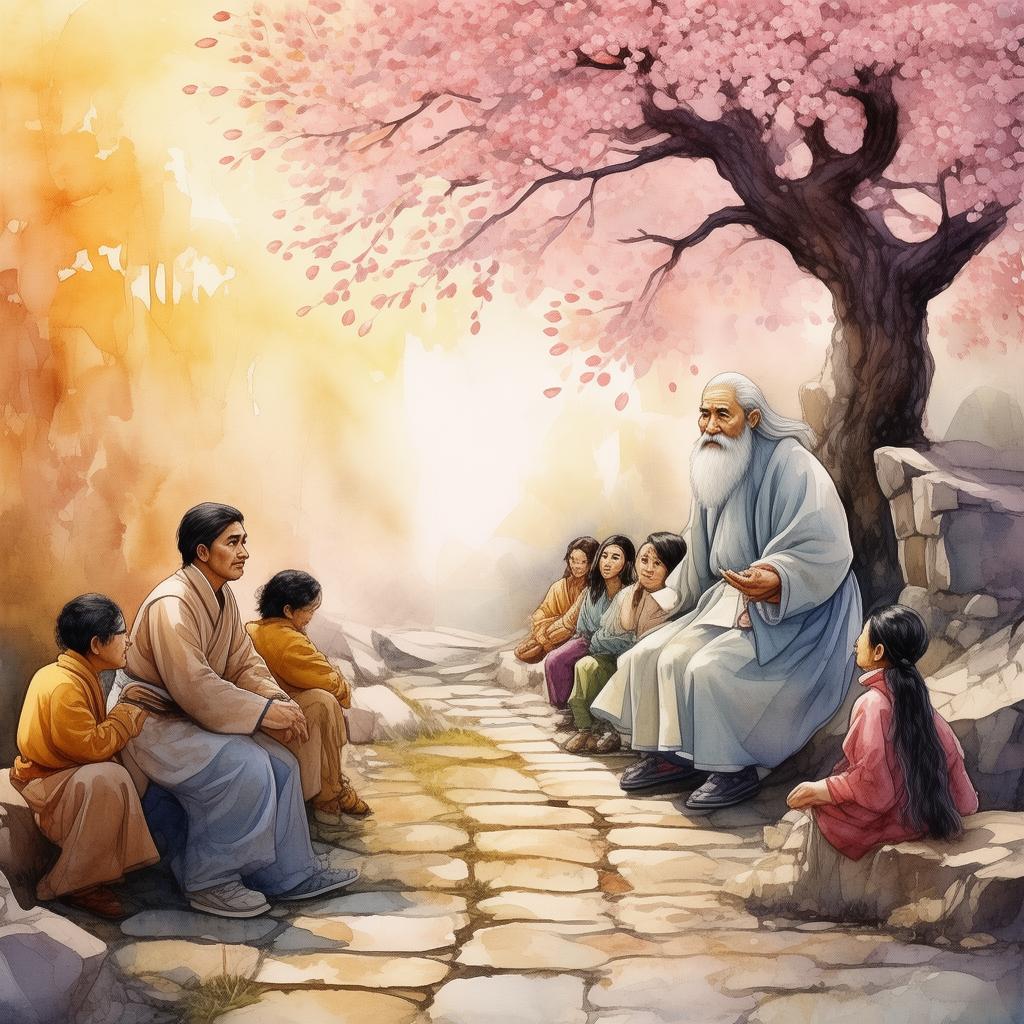
One night, as Cheng wandered the streets of the capital, he stumbled upon a small, dimly lit shop. Inside, he found an old man, hunched over a wooden table, working on intricate carvings. The man, sensing Cheng's distress, asked what troubled him.
Cheng, without hesitation, recited the riddle. The old man listened intently, then nodded slowly. "The answer is hidden in the most unexpected place," he repeated, his voice tinged with wisdom.
Cheng, feeling a spark of hope, asked the old man to explain. The old man smiled, and as he spoke, Cheng's world began to shift.
"The riddle speaks of something that has no head, no feet, but moves. It grows, but is not alive. The answer is you," the old man said, pointing to Cheng. "You, with your unyielding spirit and sharp intellect, are the embodiment of the riddle. You are the mind that seeks enlightenment, the mind that goes everywhere, the mind that grows, but is not bound by the constraints of the physical world."
Cheng was stunned. He had been searching for the answer in the most obvious places, but the true solution was right in front of him, hidden in plain sight. He realized that enlightenment was not something external, but rather a state of mind, a journey of self-discovery.
As Cheng left the old man's shop, he felt a profound sense of clarity. He understood that the unyielding power of the human spirit was the key to enlightenment. With this newfound wisdom, Cheng returned to his village, ready to share his discovery with the world.
The tale of Cheng and the Philosopher's Riddle spread far and wide, inspiring countless souls to seek enlightenment through the unyielding power of their own minds. And so, the story of Cheng's quest for enlightenment became a testament to the resilience of the human spirit, a reminder that the greatest wisdom often lies within ourselves.
✨ Original Statement ✨
All articles published on this website (including but not limited to text, images, videos, and other content) are original or authorized for reposting and are protected by relevant laws. Without the explicit written permission of this website, no individual or organization may copy, modify, repost, or use the content for commercial purposes.
If you need to quote or cooperate, please contact this site for authorization. We reserve the right to pursue legal responsibility for any unauthorized use.
Hereby declared.
